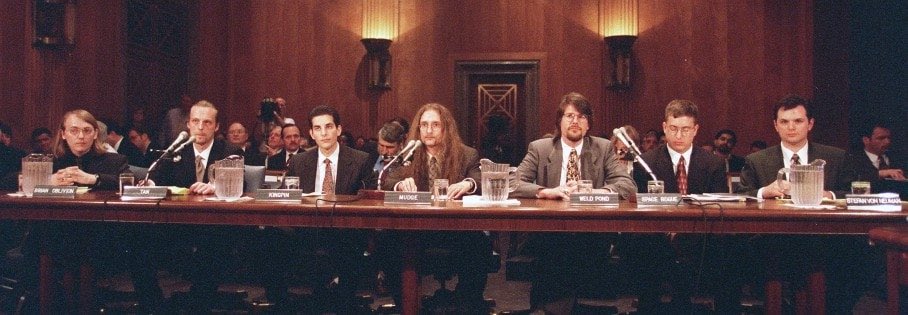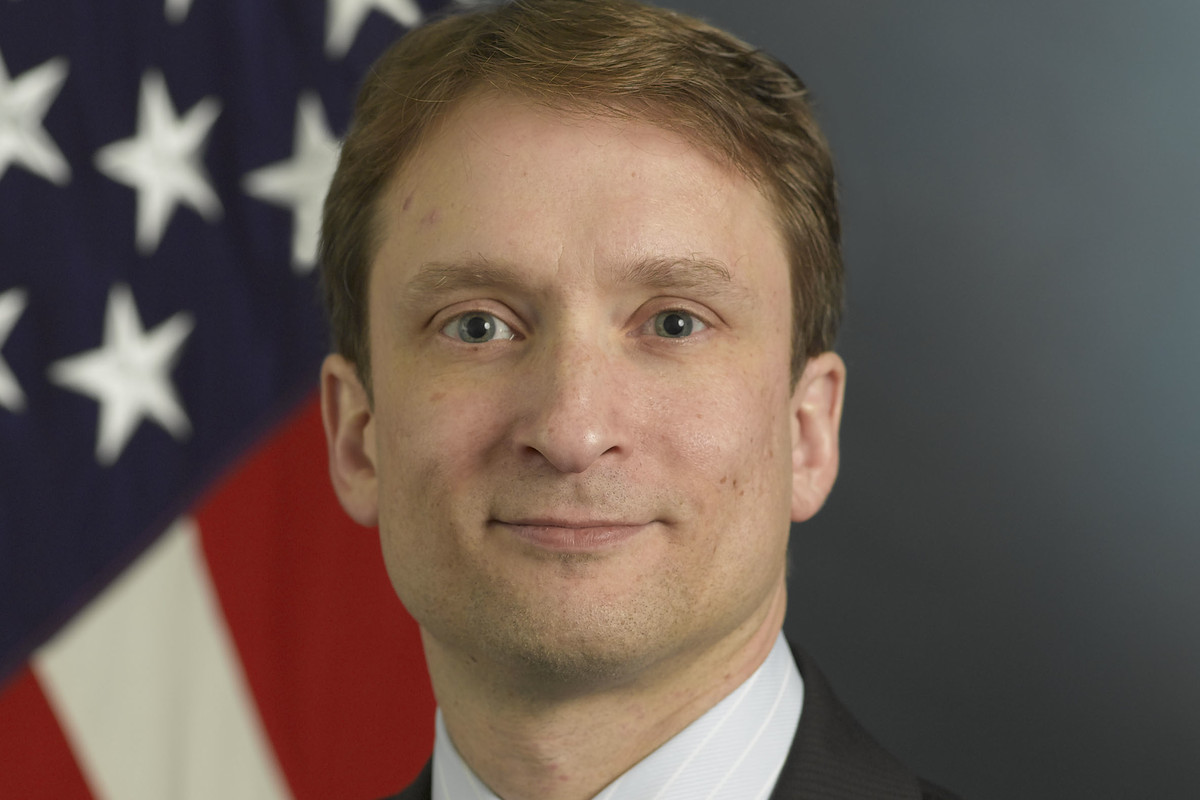
“If you’re looking for computer security, then the Internet is not the place to be.”
Said Mudge, then 27, with the look of a biblical prophet with long brown hair that fell to his shoulders.
“I’ve been told that you think the seven of you could render the Internet unusable for the entire nation within 30 minutes, is that correct?”said Senator Thompson. Mudge replied “That’s correct. Actually one of us with only a few packets.”
There were seven representatives of the hacker group LOpht, seven young people sitting in front of some of the most powerful lawmakers on Capitol Hill and they weren’t college graduates or security analysts or think tanks, but they were telling the world’s powerful people about the serious vulnerabilities that plagued the Internet that would lead to what we are experiencing today.
Mudge, Starring Brian Oblivion, Kingpin (Joe Grand), Tan, Space Rogue, Weld Pond and Stefan von Neumann, were hackers who came from different parts of the cyberspace, to send a terrifying warning to the entire world.
“Your computers are not safe”
They told the Senate Chamber on May 19, 1998.
“Not the software, not the hardware, not the networks that connect them together… and the companies that build these things don’t care and have no reason to care because failure doesn’t cost them anything.”
The senators (a bipartisan group that included John Glenn, Joseph I. Lieberman, and Fred D. Thompson) nodded, making it clear that they understood the gravity of the situation. “We’re going to have to do something about it,” Thompson said.
What happened instead was “a tragedy of lost opportunity,” as the Washington Post reported, and 23 years later the world is still paying the price for widespread insecurity, with the United States of America now facing its greatest cyber crisis, its first real cyber war, while failing to notice that it is falling behind other major powers like Russia and China in global cyber politics.
L0pht’s testimony was among the boldest of a growing chorus of warnings issued in the 1990s as the Internet was exploding in popularity, on its way to becoming a powerful global force for communication, trade and crime.
Hackers and other computer experts sounded the alarm as the World Wide Web brought the transformative power of computer networks to the masses. This created a universe of risks for users and for countries’ critical systems and for the real world, such as power plants, nuclear power plants, hospitals and everything else online around us.
Officials in Washington at the time did not understand the risk and failed to forcefully address these issues as the problems spread into cyberspace, a vast new frontier of opportunity and lawlessness.
Members of L0pht discovered a way to break encryption protecting user passwords for the Windows operating system.

Peiter C. Zatko, better known as Mudge.
Mudge has publicly berated Microsoft for what he called “encryption of the asylum.” L0pht member Dildog developed a program with another hacker group called the Cult of the Dead Cow to remotely control office networks running Microsoft software. The name, a parody of the company’s popular “BackOffice Server 2000” program, was “Back Orifice 2000”; promotional materials featured an equally crude logo.
Mudge was responsible for early research into a type of security vulnerability known as a buffer overflow. In 1995, he published “How to Write Buffer Overflows,” one of the first articles on the subject. He published some of the first security advisories and research demonstrating early vulnerabilities in Unix such as code injection, side-channel attacks, and information leaks, and was a leader in the disclosure movement.
He was the initial author of the security tools L0phtCrack, AntiSniff, and l0phtwatch.
Follow us on Google News to receive daily updates on cybersecurity. Contact us if you would like to report news, insights or content for publication.
